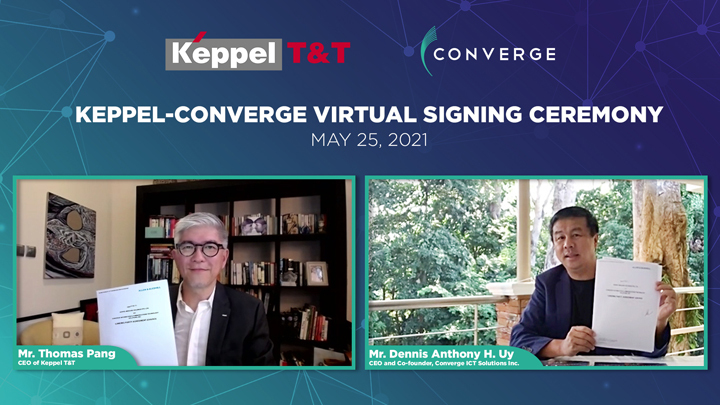
CUSTOMERS of Converge ICT Solutions Inc. should expect “significant” improvements in speed once it completes the Bifrost Cable System, a fiber optic network that will link the Asean to North America, a ranking official said.
Dennis Anthony H. Uy, the company’s CEO, said his group has signed a definitive agreement with Keppel Telecommunications & Transportation’s wholly-owned subsidiary, Keppel Midgard Holdings Pte. Ltd. (KMH), for its participation in the subsea cable system.
This, he said, will enable the company to further improve its services through the additional capacity that it will get from the said network. Converge is investing P5 billion to help build the facility.
“The additional Davao branch for the Bifrost Cable System will significantly increase internet speeds and network diversity for businesses and consumers in the Philippines for a better digital experience. Our investment into this cable system also gives us two direct international links, one going to Singapore and the other one going to North America with a design capacity of up to 15Tbps in each direction,” he said.
Under the agreement signed by the two parties, Converge is given an indefeasible right of use for one fiber pair on the cable system’s main trunk, providing the Filipino company more bandwidth to address the growing demand for Interest connectivity in the country.
“The Bifrost Cable System will enable greater Asean inter-connectivity, as well as greater connectivity between Southeast Asia and the west coast of North America, bringing significant benefits to the region’s governments, businesses and consumers,” Keppel Telecommunications CEO Thomas Pang said.
Expected to be completed in 2024 and spanning over 15,000 kilometers, Bifrost Cable System will be the largest capacity high-speed transmission cable across the Pacific Ocean when completed. It will connect Singapore, Indonesia, the Philippines, Guam, and the west coast of North America.
The Bifrost cable system will boost the connectivity of the region’s governments and businesses, including cloud operators, telecommunications operators, network providers, over-the-top providers, data centers, governments, enterprises, and consumers by offering them competitive pricing and capacity resilience.
Uy noted that the construction of the Davao branch is “subject to the relevant regulatory permits and licences being obtained.”
This initiative complements Converge’s construction of its national backbone, an initiative that will allow Converge to reach approximately 55 percent of the total households in the Philippines by 2025.
